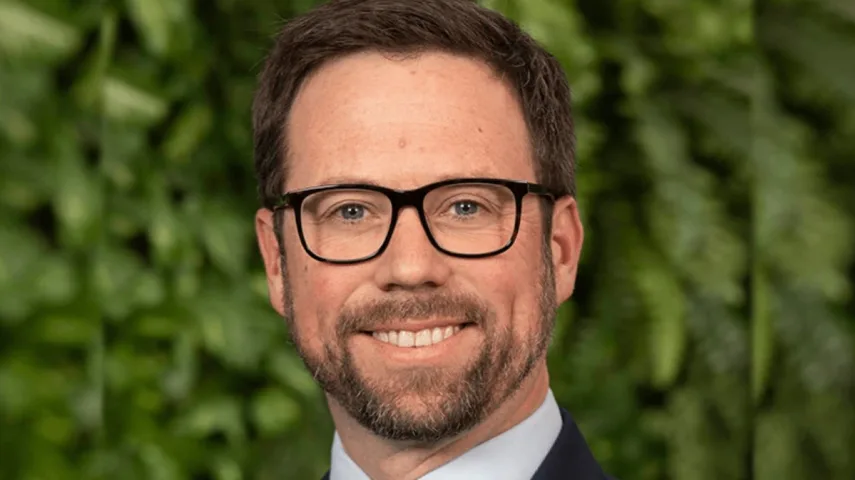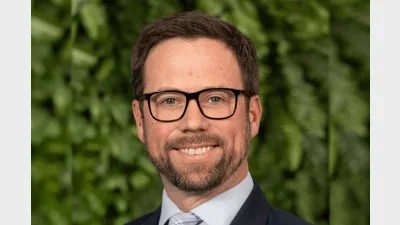What’s next for Magellan after George’s departure?



The departure of David George is yet another turbulent time for Magellan, coming just weeks after the company celebrated completing its board renewal process.
Yesterday (25 October), it was announced David George, Magellan’s managing director and chief executive, would be departing effective immediately and Andrew Formica would be acting as executive chairman while it sought a replacement.
In a statement to the ASX, Formica said: “The board, in consultation with David, believe it is time to refocus leadership which will accelerate the progress made to date. The board remains focused on the delivery of exceptional investment performance and are well positioned to continue to explore organic and inorganic growth opportunities. I am personally committed to the task of leading Magellan until such time a new CEO can be appointed.”
Shares in the ASX-listed asset manager are down by 39 per cent over the year to 25 October and by 72 per cent over five years.
Canadian George was brought on board in May 2022 from the Future Fund, receiving a base salary of $1.8 million, as the asset manager looked to rebuild in the wake of Hamish Douglass’ temporary leave of absence. Douglass never ended up returning full time to the company, and currently acts in a consultant capacity.
George was later appointed as chief investment officer in October 2022 but stepped back from the role in August 2023.
At the time of his arrival, George said: “Magellan has a significant depth of talent and has demonstrated consistent investment and operational excellence through time. I look forward to working with the team to build upon this track record of success, generating strong and sustained investment results for our clients.”
Among his aims were rebuilding the firm’s assets under management to $100 billion in five years and improving the performance of the flagship Magellan Global Fund, which had suffered underperformance after a series of investment choices turned against them during the COVID-19 pandemic.
Formica joined the board this July as non-executive director but was quickly moved into the non-executive chairman role at Magellan Financial Group, replacing Hamish McLennan.
Appearing on Money Management’s Relative Return podcast, George discussed how he also wanted to build a “collaborative culture” after the star manager environment that existed under Douglass.
“We made what was already there work better, rather than change what was there or change people. So, first and foremost, get as much focus as we could onto the existing strategies, making sure we had idea generation working well,” he said.
“Like a lot of businesses, particularly ones that have been as successful, you become bigger and you become more complicated. It’s just really simplifying that focus to make sure that it had less entrepreneurial attachments and more focus on really making sure that we got the core bread and butter, sticking to our knitting work.”
Despite his bold ambitions to return the firm to $100 billion in five years, outflows continue to pour out and FUM is down to $35 billion as of 30 September. It also suffered from the loss of Airlie founder John Sevior, which impacted flows into its Australian equity vehicles.
For Formica, he has spoken about how he expects growth at the asset manager will come both organically and inorganically and he has a history with M&A activity in his previous life as co-CEO of Janus Henderson, having completed the merger between Janus Capital and Henderson Global Investors.
During his tenure, he helped Henderson double its assets under management from £52.9 billion ($99 billion) when he took over the role to £100 billion through an aggressive acquisition strategy of New Star in 2009 and Gartmore in 2011. Henderson also held a minority stake in Australian specialist natural resources fund manager 90 West Asset Management in 2013, later taking a full stake in 2015, and acquired Perennial Fixed Interest Partners and Perennial Growth Management from IOOF in 2015.
Speaking at Magellan's annual results in July shortly after his appointment, Formica said: "M&A is one of the tools available to us as part of our growth strategy. M&A can be successful and that tends to be when there is strong cultural alignment and a strong strategic intent."
"In parallel with improving performance across our existing funds, we will leverage Magellan’s high-quality platform to deliver growth by expanding our offerings in ways that are additive and do not dilute Magellan’s existing strengths," he added in his first shareholder letter in October.
As well as his FUM goals, George also introduced pay increases for board members in order to attract talent after an independent adviser found Magellan’s pay was “significantly below” market peers. This saw board remuneration increase by $1 million to a cap of $1.7 million per annum in any financial year.
This was referenced again in this week’s ASX release, when Formica said it is developing a new employee accountability and alignment model to provide staff with short-term and long-term incentives aligned to positive client and shareholder outcomes which will commence on 30 June 2024.
The news comes as the firm celebrated completing its board renewal process with the appointments of non-executive directors Cathy Kovacs and Deborah Page due to join imminently, and David Dixon having joined earlier this year.
But it will now have to re-open those recruitment books and seek out a new chief executive once again.
Recommended for you
Two former senior Global X employees have launched their own ETF provider, ETF Shares, focused on offering index ETFs for advisers and retail investors.
With GCQ Funds Management and Lakehouse Capital making their recent ETF debuts, the two fund managers unpack why financial advisers are essential to their respective launches.
ETF provider Global X is set to launch its latest ETF, focused on artificial intelligence infrastructure.
Index provider MSCI has unveiled two measures to make it easier for financial advisers and wealth managers to access transparent insights into private assets.















